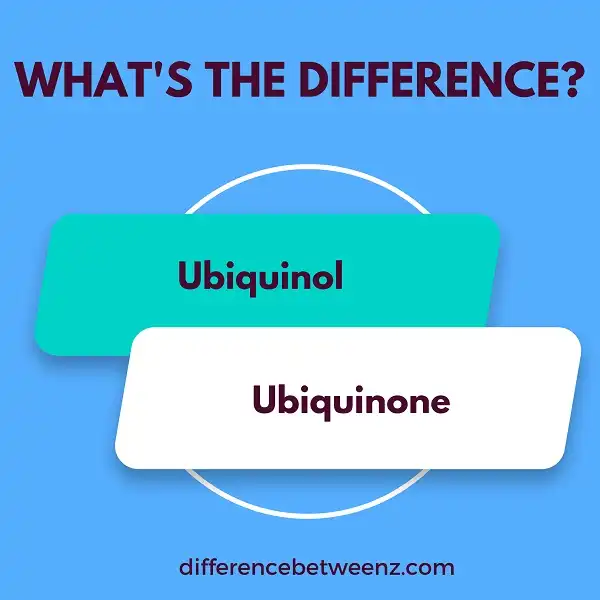There are many supplements on the market that promise to improve your health, but it can be hard to know which ones are worth taking. One important supplement to know about is ubiquinol and ubiquinone. These two forms of Co-enzyme Q10 play an important role in energy production and antioxidant protection, but they have some key differences. In this article, we’ll explore those differences and help you decide which form is right for you.
What is Ubiquinol?
Ubiquinol is a form of the vitamin-like substance CoQ10 that is primarily found in mitochondria, the powerhouses of cells. It plays an important role in energy production and acts as an antioxidant. Ubiquinol levels tend to decline with age, and some research suggests that supplementing with this nutrient may help to protect against age-related damage. Additionally, Ubiquinol has been shown to support heart health and cognitive function. Ubiquinol supplements are generally well-tolerated, but they can cause nausea, upset stomach, and headaches in some people.
What is Ubiquinone?
- Ubiquinone is a type of quinone that acts as an electron carrier in the mitochondrial electron transport chain. It is also known as coenzyme Q10, or simply CoQ10. Ubiquinone is found in all eukaryotic cells, where it plays an important role in energy production.
- In humans, Ubiquinone is synthesized in the liver and kidneys, and it is also present in small amounts in food. Ubiquinone is a fat-soluble compound, meaning it dissolves in fat and oil but not in water.
- This makes it difficult for the body to absorb Ubiquinone from food sources, so supplements are often necessary to achieve desired levels. Ubiquinone has a wide range of potential health benefits, including reducing the risk of heart disease and improving cognitive function. It is also being studied as a treatment for cancer and other diseases.
Differences between Ubiquinol and Ubiquinone
Ubiquinol and Ubiquinone are two forms of the same molecule, Coenzyme Q10 (CoQ10). Ubiquinol is the reduced form of CoQ10, while Ubiquinone is the oxidized form. Both Ubiquinol and Ubiquinone are found in foods and supplements, and they both play an important role in energy production. However, Ubiquinol is more easily absorbed by the body, and it has been shown to be more effective at raising levels of CoQ10 in the blood. Additionally, Ubiquinol may be more effective at reducing oxidative stress and improving heart health. Therefore, Ubiquinol may be a better choice for those looking to improve their CoQ10 levels.
Conclusion
Although both ubiquinol and ubiquinone are forms of CoQ10, they have different benefits. Ubiquinol is the reduced form of CoQ10, while ubiquinone is the oxidized form. Ubiquinol has been shown to be more effective than ubiquinone in terms of absorption and bioavailability. Additionally, ubiquinol helps protect cells from oxidative stress, which can lead to cell damage.


